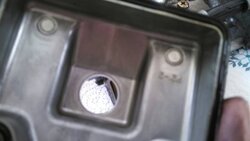firefighterjake
Minister of Fire
Ah yes . . . ethanol gas . . . here we go again. 
Post A: Ethanol is terrible and the Devil's Fuel. If you use it all of your small engines will blow up.
Post B: Ethanol is good and is God's Sweat. If you use it all of your small engines will run better and cleaner.
Post C: The truth is somewhere in the middle. It's probably here to stay. It can cause problems . . . especially if one does not take precautions when storing it in small engines for long times with some sort of stabilizer. The best fuel stabilizer is ______ (insert favorite brand here that your second cousin who has a PhD in Chemical Engineering endorses). Most folks don't have many problems using it.
Pick your own post . . .

Post A: Ethanol is terrible and the Devil's Fuel. If you use it all of your small engines will blow up.
Post B: Ethanol is good and is God's Sweat. If you use it all of your small engines will run better and cleaner.
Post C: The truth is somewhere in the middle. It's probably here to stay. It can cause problems . . . especially if one does not take precautions when storing it in small engines for long times with some sort of stabilizer. The best fuel stabilizer is ______ (insert favorite brand here that your second cousin who has a PhD in Chemical Engineering endorses). Most folks don't have many problems using it.
Pick your own post . . .




